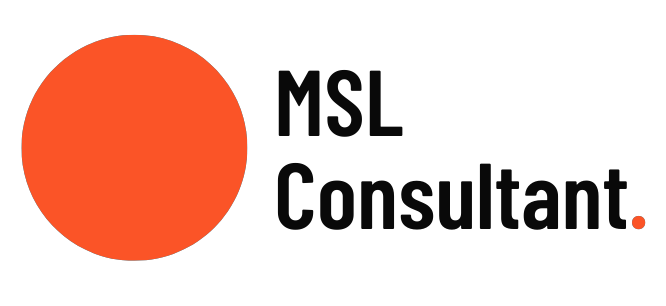Three typical MSL interview questions and the answers hiring managers want to hear
Congratulations, you’ve passed the human resources screening call and landed a first round MSL interview. Preparation is key to guarantee you successfully progress to the next round of interviews.
The purpose of the first round MSL interview is twofold:
1. Ensure the candidate has a good understanding of the MSL role (the hiring manager will accept that some training is required, but a candidate with a clear understanding of the MSL role will require less training and therefore be more attractive to hire than a complete novice)
2. Understand if the candidate has the necessary skillset to perform the MSL role
First round MSL interviews typically last for approximately one hour and will be with the hiring manager and a representative from human resources. The first round interview will include questions on your experience and CV, and you can also be confident that the questions included in this article will come up in some shape or form. Preparation of the answers to these core MSL interview questions prior to the interview will not only settle your nerves but also give the hiring manager confidence that you know what you are talking about. In this article, I’m going to provide examples of three questions that are commonly asked in MSL first round interviews and how you should answer them.
Have an upcoming MSL interview? Read our step by step guides on how to impress the hiring manager with your clinical paper presentation and answers
Question 1: What is your understanding of the MSL role?
This question is asked in the majority of MSL interviews when candidates do not have MSL experience. You want to appear natural in your response so don’t just memorise the below answer, but instead understand it and put it into your own words. Once you’ve given the definition of an MSL, expand on your answer and utilise the job you are applying for as an example to demonstrate your full understanding of what the role requires.
Answer: An MSL is a field based non-promotional medical affairs team member who builds collaborative and mutually beneficial relationships with Key opinion Leaders (KOLs) in a defined therapeutic area with the overall goal to drive the brand forward.
For example, an MSL for this oncology drug will build relationships with medical oncologists, gain insights about how the drug is used, how the clinical data is perceived, what data gaps there are for the drug and share these insights with the company. This will then help the company to develop an effective medical and marketing strategy.
Want more tips and a deeper understanding of the MSL role? Sign up to our newsletter below.
Question 2: Why do you want to leave academia?
In an interview situation, you should always be as positive as possible. Your decision to leave academia is really an opportunity to enter pharma. For this answer, you want to identify the things you enjoyed about academia that are also common to working in medical affairs.
Answer: I’ve worked in research for many years and my favourite part of my current job is presenting at conferences and discussing science. However, I feel my current job lacks team-based projects and I’m looking for a role where I can work with different departments (eg. market access, marketing, regulatory) and learn and collaborate with people who possess different skill sets to me. I feel the MSL role would be a great fit for me as my scientific communication and relationship building skills are strong and I’m keen to work in a more commercial environment. I also think that because my PhD focused on {insert PhD topic with relevance to therapeutic area}, I would be able to hit the ground running and could very quickly upskill in the therapeutic area.
Question 3: Tell me about a time that you successfully influenced someone?
Every position description for an MSL job talks about the importance of influencing KOLs and internal stakeholders. In short influencing skills are the ability to bring others to your way of thinking without force or coercion. Although there are many different steps to influencing (comment below if you want an article dedicated to the art of MSL influencing), in a nutshell to influence someone you need to highlight how they will benefit from the project you are proposing. An MSL hiring manager won’t expect you to have an example of when you influenced a KOL, but it is useful to have an example of when you influenced someone in your career.
Answer: During my PhD, I had to influence my PhD supervisor to enable me to research a specific avenue, using an expensive technique. I knew my supervisor was concerned about our limited budget, but he was also highly motivated to achieve publications. So, when I presented my case to him I highlighted that the proposed experiment would yield results quickly and the technique was well established as a robust methodology in many published papers. I showed him these publications to support my case. I also did research on the exact cost of the technique and received quotes from different companies to demonstrate I had done my due diligence and shopped around. The result was that my supervisor agreed to allow me to use the expensive technique as he saw how it could benefit him (get publications quicker).
Summary
So there you have it, three typical MSL interview questions and sample answers. Practising your answers out loud and in the mirror before your interview will help you appear confident and will also ensure your body language is communicating positive messages to the hiring manager (sit up straight, make eye contact and smile). For more tips on MSL interview questions check out our interview coaching services and interview guides.
